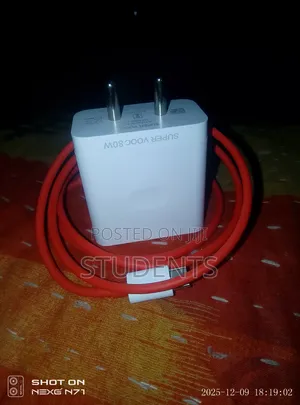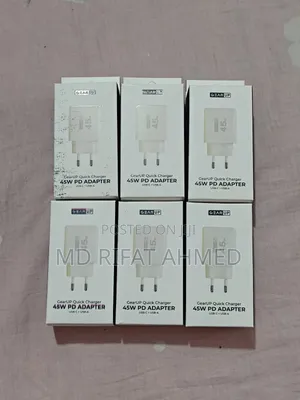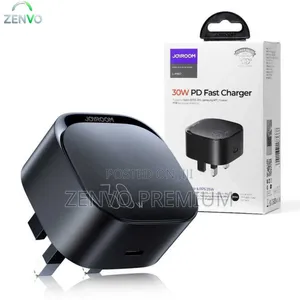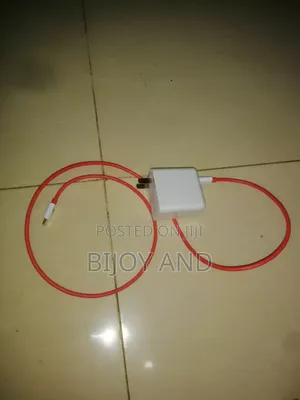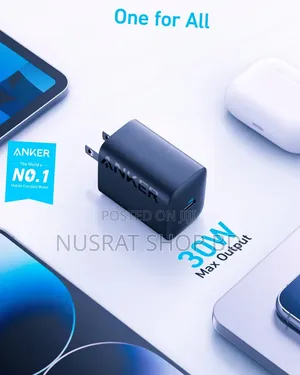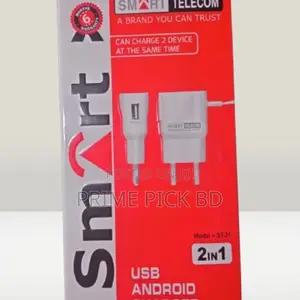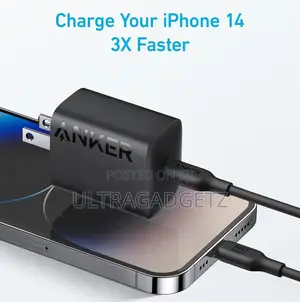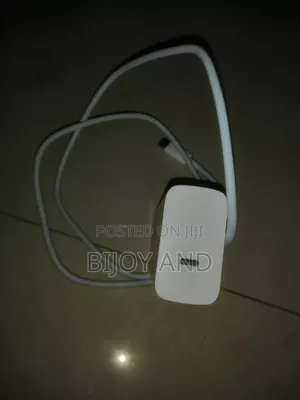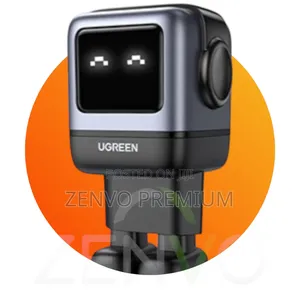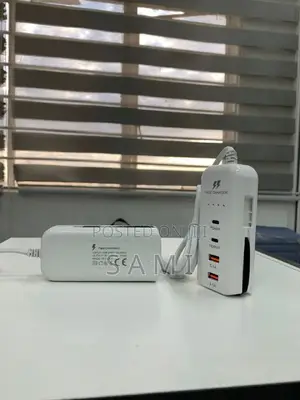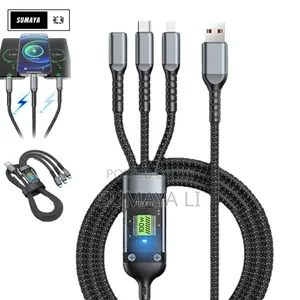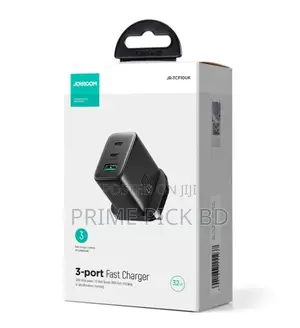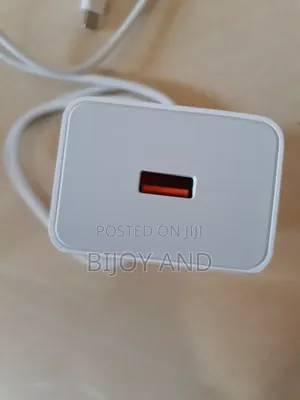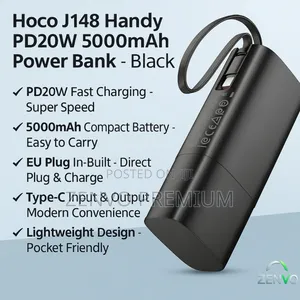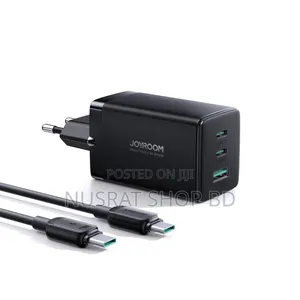Chargers & Power Adapters in Bangladesh

Chargers & Power Adapters

Power Bank

Cables

Bluetooth Mono Headsets

Charging Stations

Cases

Batteries
1 - 20 of 120 results
Chargers & Power Adapters FAQs
💎 Which ones belong to the premium segment?
💰 Which ones are the cheapest?
Chargers: A Comprehensive Guide to Choosing the Right Charger for Your Devices
Chargers are essential accessories for keeping your electronic devices powered up and ready for use. From smartphones and tablets to laptops and wearables, having the right charger can make all the difference in charging speed, efficiency, and safety. This guide explores the various types of chargers, their features, pros and cons, expert opinions, and frequently asked questions to help you choose the right charger for your needs.
Types of Chargers
There are several types of chargers available on the market, each designed to cater to specific devices and charging requirements. Here’s a breakdown of the most common types:
- USB-A Chargers: These are the standard chargers with a USB-A port, commonly used for charging smartphones, tablets, and other small devices. They offer fast charging capabilities but are gradually being replaced by newer USB-C chargers.
- USB-C Chargers: USB-C is the latest standard for charging and data transfer. These chargers are widely used for smartphones, tablets, laptops, and other modern devices due to their fast charging speeds and reversible connector design.
- Wireless Chargers: Wireless chargers use Qi technology to charge compatible devices without the need for cables. Simply place your device on the charging pad, and it will begin charging wirelessly. Wireless chargers are ideal for smartphones, smartwatches, and earbuds with wireless charging capabilities.
- Fast Chargers: Fast chargers provide higher wattage output, allowing devices to charge more quickly. Most modern smartphones and tablets support fast charging, making these chargers a popular choice for users who need a quick power boost.
- Laptop Chargers: These chargers are specifically designed for laptops, with higher power output (typically 45W or more) to meet the power demands of larger devices. Many modern laptops now use USB-C chargers, making them more versatile.
- Car Chargers: Car chargers plug into your vehicle’s cigarette lighter or USB port, allowing you to charge your devices while on the go. They are convenient for long drives or when you need to power up your devices during travel.
Charging Technologies: What to Look For
When choosing a charger, it’s important to consider the charging technology it supports. Here are some key technologies to keep in mind:
- Quick Charge (QC): Developed by Qualcomm, Quick Charge technology allows compatible devices to charge at a faster rate. QC 3.0 and QC 4.0 are commonly used in Android devices, offering faster charging speeds than standard USB chargers.
- Power Delivery (PD): USB Power Delivery is a fast-charging standard that allows devices to charge more quickly by delivering higher power levels. USB-C chargers with PD are widely used for smartphones, tablets, and laptops, offering universal compatibility.
- GaN Technology: Gallium Nitride (GaN) chargers are more compact and efficient than traditional silicon chargers. They can handle higher power outputs without overheating, making them ideal for fast charging devices like laptops, smartphones, and tablets.
Compatibility: Choosing the Right Charger for Your Device
Before purchasing a charger, ensure that it is compatible with your device. Here are a few tips to help you choose the right charger:
- Check the Device’s Charging Port: Determine whether your device uses USB-A, USB-C, Lightning, or a proprietary charging port. Many modern devices now use USB-C, while Apple devices still rely on Lightning connectors.
- Consider the Required Power Output: Laptops and tablets typically require higher wattage chargers than smartphones. For example, laptops may need a 45W or higher charger, while smartphones generally require 18W or more for fast charging.
- Ensure Fast Charging Compatibility: If your device supports fast charging technologies like Qualcomm Quick Charge or USB Power Delivery, ensure that the charger is compatible with these standards to take advantage of faster charging speeds.
Wireless Chargers: Convenience at Its Best
Wireless chargers are becoming increasingly popular due to their convenience and ease of use. Most wireless chargers are based on the Qi standard, which is compatible with many smartphones, smartwatches, and wireless earbuds. Wireless chargers typically offer slower charging speeds compared to wired fast chargers, but they are perfect for overnight charging or when you need a convenient charging solution on your desk or bedside table.
Some wireless chargers also come with multi-device charging capabilities, allowing you to charge your smartphone, smartwatch, and earbuds simultaneously. These are ideal for users with multiple devices that support wireless charging.
Fast Chargers: Get a Quick Power Boost
Fast chargers provide higher power output than standard chargers, allowing devices to charge at a much faster rate. Most fast chargers offer at least 18W of power, with some models offering 30W or more for even faster charging times. To take full advantage of fast charging, your device must support fast charging standards like Qualcomm Quick Charge or USB Power Delivery.
Fast chargers are especially useful when you need to quickly top up your device’s battery. For example, many smartphones can charge up to 50% in just 30 minutes with a fast charger, making them ideal for users with busy lifestyles.
Pros and Cons of Different Charger Types
USB-A and USB-C Chargers
- Pros: Widely compatible, fast charging speeds (USB-C), easy to use, available for a variety of devices.
- Cons: USB-A chargers are being phased out in favor of USB-C, and not all devices support fast charging.
Wireless Chargers
- Pros: Convenient and cable-free, compatible with multiple devices, good for overnight charging.
- Cons: Slower charging speeds compared to wired chargers, may not work with all cases or accessories.
Fast Chargers
- Pros: Provides rapid charging for compatible devices, reduces charging time significantly.
- Cons: Fast charging may generate more heat, and not all devices support fast charging technologies.
Expert Opinions
Tech experts frequently recommend investing in a high-quality charger that supports fast charging technologies like USB Power Delivery or Qualcomm Quick Charge. These chargers can significantly reduce charging times and are particularly useful for modern smartphones, tablets, and laptops. Experts also suggest looking for chargers with GaN technology for a more compact and efficient charging solution, especially for users with multiple devices.
For users who value convenience, wireless chargers are a popular recommendation, especially multi-device chargers that can power up a phone, smartwatch, and earbuds at the same time. While wireless charging is slower, it is a great option for users who want a clutter-free charging experience.
User Reviews and Feedback
User Testimonials
“I love my USB-C fast charger! It charges my phone so quickly, and the reversible design makes it easy to plug in. I also use it to charge my tablet and laptop, so I don’t have to carry multiple chargers.” – Aisha Karim, Dhaka
“The wireless charger I bought has been a game-changer. I can just drop my phone on it, and it starts charging instantly. No more fussing with cables, especially before bed. I also love that it charges my smartwatch at the same time.” – Rahim Uddin, Chittagong
Expert Reviews
“For users looking for speed and convenience, fast chargers with USB Power Delivery are the way to go. They can charge multiple devices quickly, including smartphones, tablets, and laptops. GaN chargers are particularly noteworthy for their efficiency and compact design.” – Sharmin Akhter, Tech Reviewer
“Wireless chargers are an excellent addition for users who prioritize convenience. While they are not as fast as wired chargers, the ability to charge your phone, smartwatch, and earbuds simultaneously makes them ideal for home or office use. Qi-compatible devices make them widely accessible.” – Imran Hossain, Mobile Expert
Frequently Asked Questions
What is the difference between USB-A and USB-C chargers?
USB-A is the older standard with a rectangular port, while USB-C is the newer, reversible connector that offers faster charging and data transfer speeds. USB-C is gradually replacing USB-A for most devices due to its improved capabilities.
Can I use a fast charger with any smartphone?
You can use a fast charger with any smartphone, but to benefit from fast charging speeds, your phone must support a fast charging standard like Qualcomm Quick Charge or USB Power Delivery. Otherwise, the phone will charge at its normal speed.
Does wireless charging work with phone cases?
Yes, wireless charging works with most phone cases, as long as they are not too thick or made of metal. Some thicker cases or cases with metal components may interfere with the wireless charging process.
Final Thoughts
Choosing the right charger depends on your device’s needs, charging preferences, and lifestyle. Whether you’re looking for the convenience of wireless charging, the speed of fast charging, or a reliable option for multiple devices, there’s a charger out there that meets your requirements. The Samsung Galaxy Tab lineup offers a range of compatible chargers, ensuring your tablet and other devices stay powered up efficiently.
Invest in a high-quality charger for fast, reliable, and convenient power for all your devices.



